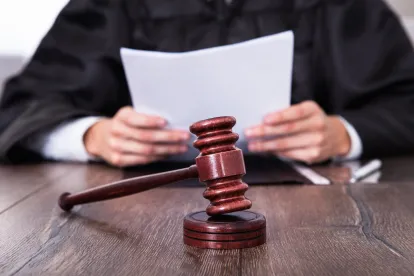In Morris v. Spectra Energy Partners (DE) GP, LP, the Court of Chancery held that the plaintiff, who previously lost standing to maintain a derivative action after it ceased to be a unit holder of a limited partnership, also lacked standing to directly challenge the fairness of the transaction that extinguished its right to pursue the derivative action.
In the prior litigation of this matter, Paul Morris (“Morris”), a limited partner of Spectra Energy Partners, LP, a Delaware master limited partnership (the “Partnership”), brought a derivative suit against the general partner of the Partnership (the “General Partner”) after the General Partner caused the Partnership to sell assets to the indirect parent of the General Partner (“Enbridge”). After Morris’s derivative suit survived a motion to dismiss, Enbridge acquired all of the common units of the Partnership in exchange for shares of Enbridge (the “Roll-Up”) and the General Partner moved to dismiss Morris’s derivative claim arguing that a plaintiff who ceases to be a unitholder, whether by reason of merger or for any other reason, loses standing to continue a derivative suit. The Court of Chancery granted the motion to dismiss.
Morris subsequently filed a new complaint asserting two direct claims: (1) that the general partner breached the partnership agreement of the Partnership and (2) the general partner breached the implied contractual covenant of good faith and fair dealing. The Court, however, found that Morris lacked standing and dismissed both claims.
In certain circumstances, Delaware law permits stockholders who lose standing under this scenario to directly challenge the fairness of the merger that extinguished their right to pursue the derivative action. In order to maintain a direct action, the plaintiff must establish standing to sue under the following three-part test set forth in In re Primedia, Inc. Shareholders Litigation: (1) the plaintiff must plead an underlying derivative claim that has survived a motion to dismiss or otherwise could state a claim for which relief could be granted; (2) the value of the derivative claim must be material in the context of the merger; and (3) the complaint challenging the merger must support a pleadings-stage inference that the acquirer would not assert the underlying derivative claim and did not provide value for it.
The Court held that Morris satisfied the first prong of the test because his derivative claim survived a motion to dismiss. The Court also held that the third prong was satisfied because the public unitholders of the Partnership received no value for the derivative claim.
The Court, however, found that Morris failed to satisfy the second prong of the test. In determining whether the value of the derivative claim was material, the Court first calculated the value of the claim. The materiality was then adjudicated by viewing that value in the context of the transaction as a whole. Morris alleged that the derivative claim was worth more than $661 million to the Partnership. The value of this claim, however, was discounted to reflect the minority unitholders’ beneficial interest in the litigation recovery. This reflects the fact that the public unitholders of the Partnership would only share in that portion of the recovery from the derivative claim for those units that were not owned by Enbridge prior to the Roll-Up. Enbridge owned about 83 percent of the limited partner units, while the minority unitholders owned about 17 percent. The Court, therefore, held that the value of the derivative claim was approximately $112 million, or 17 percent of $661 million. The Court then held that the chance of success of the derivative claim was less than one-in-four. As such, the Court multiplied $112 million by 25 percent. This figure, according to the Court, represented less than one percent of the total value of the Roll-Up, which was not material in the context of the Roll-Up. As such, the Court found that the second prong was not satisfied and Morris lacked standing to pursue his direct claims.





 />i
/>i
